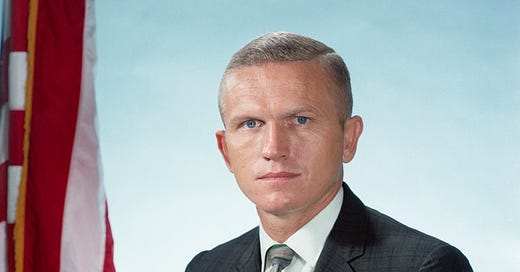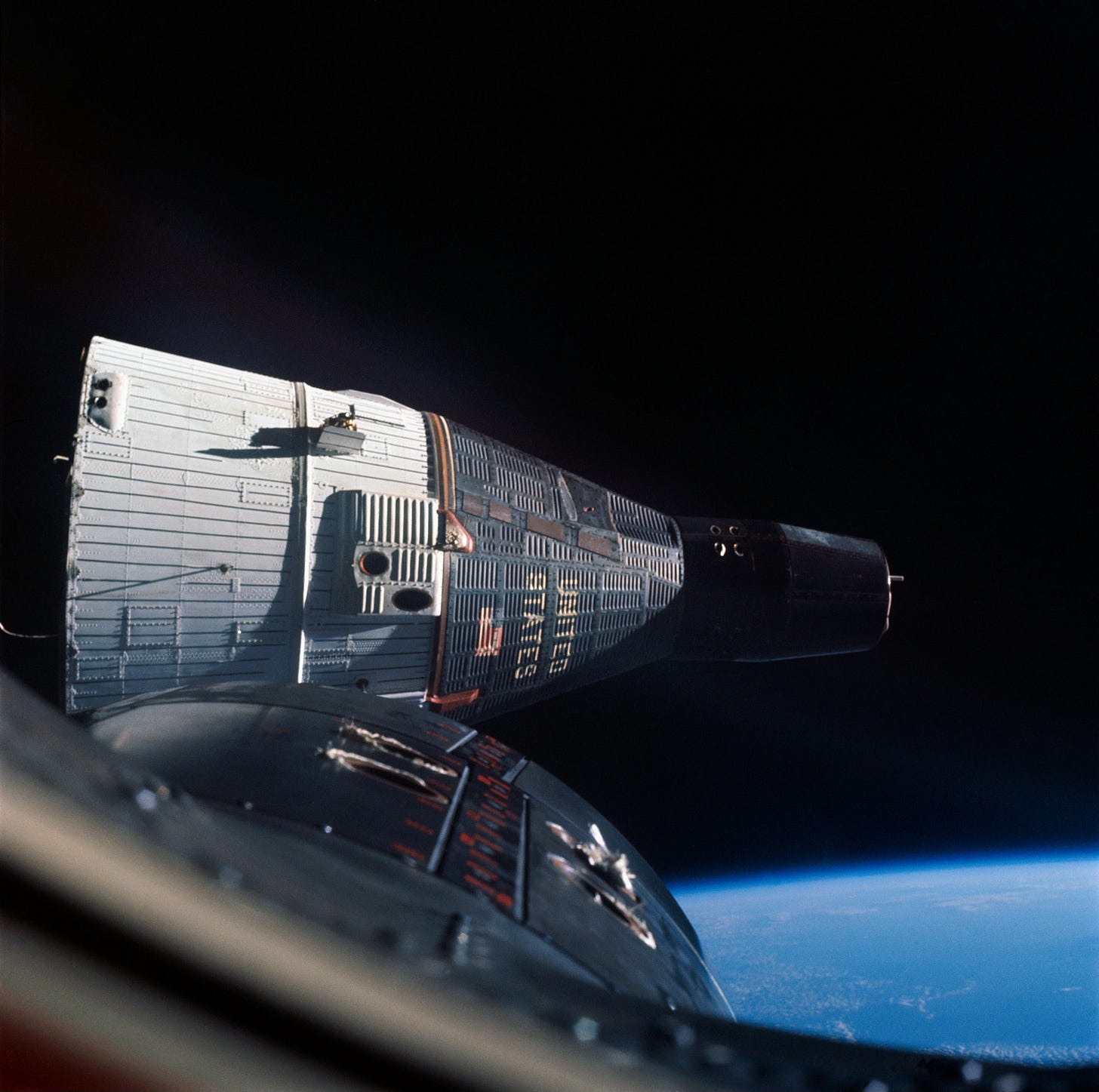One of my favourite quotes, and one which I have tried to impart on anyone I have taught to fly can be attributed to astronaut Frank Borman:
“A superior pilot uses their superior judgment to avoid situations requiring the use of their superior skill.”
For me this sums up in one line the fundamental attitude every pilot, military or civilian, private or commercial, should have to flying. Whether you are taking your microlight out for a Sunday afternoon jolly, crossing vast oceans with hundreds of passengers behind you, or test flying a new exotic aircraft type. If you abide by this philosophy, it will put you in good stead.
So who was Frank Borman? He is probably one of the most overlooked heroes of the Apollo program. He flew in space twice, first on Gemini 7 and then on arguably the most important spaceflight to date in human history; Apollo 8.
Michael Collins, probably my favourite astronaut, said in his book “Carrying the Fire” of Borman:
“Aggressive, capable, makes decisions faster than anyone I have ever met—with an amazingly good batting average, which would be even better if he slowed down a bit. Attracted to money and power, in the long run Frank will probably be the most successful of the group, not counting Neil, who will, of course, occupy a special place in history.”
Frank Borman was born on March 14, 1928, in Gary, Indiana, and grew up in Tucson, Arizona. From an early age, he exhibited a keen interest in aviation, which led him to pursue a career in the military. Borman graduated from the United States Military Academy at West Point in 1950 and later earned a Master of Science degree in Aeronautical Engineering from the California Institute of Technology. His path to NASA began as an Air Force test pilot, where his technical acumen and leadership qualities stood out.
Borman did not join NASA because he wanted to explore space. He was a Cold War warrior at heart, viewing spaceflight as an extension of the geopolitical struggle between the United States and the Soviet Union. He often saw NASA’s mission through the lens of national defence, believing that the technological and exploratory advances in space were critical to maintaining American superiority.
Borman’s first spaceflight was aboard Gemini 7 in December 1965, alongside astronaut Jim Lovell. This mission set a record for the longest spaceflight at the time, lasting 14 days. The primary objective was to demonstrate that astronauts could endure the extended periods of weightlessness necessary for a future trip to the Moon.
The Gemini 7 capsule was incredibly cramped, measuring only about 9 feet long and 5 feet in diameter. For 14 days, Borman and Lovell had to endure the confines of this small space, with limited movement and the constant presence of their crew-mate. The conditions were far from comfortable; the astronauts had to eat, sleep, and work in this tiny volume. Their endurance and ability to maintain their composure under such conditions were critical in proving that longer-duration missions were feasible.
One of the highlights of Gemini 7 was its rendezvous with Gemini 6A. This mission, commanded by Wally Schirra and piloted by Tom Stafford, was initially planned to launch before Gemini 7 but was delayed due to technical issues. The successful rendezvous, which occurred on December 15, 1965, demonstrated the feasibility of two spacecraft meeting and flying in formation, a critical skill required for future lunar missions. The two spacecraft came within one foot of each other, an impressive feat of precision and coordination, marking a significant milestone in spaceflight history.
In January 1967, tragedy struck when a cabin fire during a pre-launch test of Apollo 1 killed three astronauts: Gus Grissom, Ed White, and Roger B. Chaffee. Borman was appointed to the investigative board, a role that underscored his commitment to astronaut safety and program success. His thorough and candid investigation led to critical changes in spacecraft design and safety protocols, ensuring that future missions could proceed with reduced risk. This investigation was pivotal in setting NASA back on track toward its lunar goals.
In December 1968, Borman commanded Apollo 8, the first crewed mission to leave Earth’s orbit. It was a monumental achievement, occurring at a time when the space race with the Soviet Union was at its peak. The mission’s success laid the groundwork for the historic Apollo 11 Moon landing.
Apollo 8 was not just a technical triumph; it was a profound moment for humanity. As the spacecraft orbited the Moon, astronaut Bill Anders took one of the most iconic photographs in history: Earthrise. This image, showing the Earth rising above the lunar horizon, captured the fragility and unity of our home planet. It became a symbol of environmental awareness and global unity, reminding us all of the interconnectedness of life on Earth.
Another momentous event during the mission was the crew’s broadcast on Christmas Eve. As millions of people around the world tuned in, Borman, Anders, and Lovell read from the Book of Genesis. Borman began, “In the beginning, God created the heavens and the earth,” followed by Anders and Lovell continuing the verses. This reading from Genesis, against the backdrop of the Moon and the distant Earth, provided a powerful moment of reflection and hope during a tumultuous time in history.
The mission was incredibly risky, it was the first time humans had travelled so far and left the Earth’s gravitational sphere of influence. Apollo 8 was also the only flight to the Moon with no Lunar Module. Had the events of Apollo 13 (where the Lunar Module was used as a lifeboat) occurred during the Apollo 8 flight the crew would certainly have perished. Interestingly Jim Lovell who flew with Borman on Gemini 7 and Apollo 8 went on to be the commander of Apollo 13. This made him the only person in history to journey to the Moon twice, without setting foot on it.
After retiring from NASA in 1970, Borman transitioned to a career in business. He joined Eastern Air Lines, eventually becoming its CEO. Under his leadership, the airline saw significant growth and modernisation, though it also faced considerable challenges, including labour disputes and financial difficulties. He later served on various corporate boards and remained a vocal advocate for space exploration and national defence.
Borman could be an intimidating character, but no doubt he was the right person with the right skill-set. To close, I would like to share a link to an interview with Borman on the “Space Boffins” podcast recorded in 2018, it is a truly fascinating listen.
Frank Borman passed away in November 2023, aged 95.
“And from the crew of Apollo 8, we close with good night, good luck, a Merry Christmas, and God bless all of you - all of you on the good Earth.”
If you know someone you think would enjoy “Orphans of Apollo” or any of the other writing in “Explorations” please share this publication with them.







